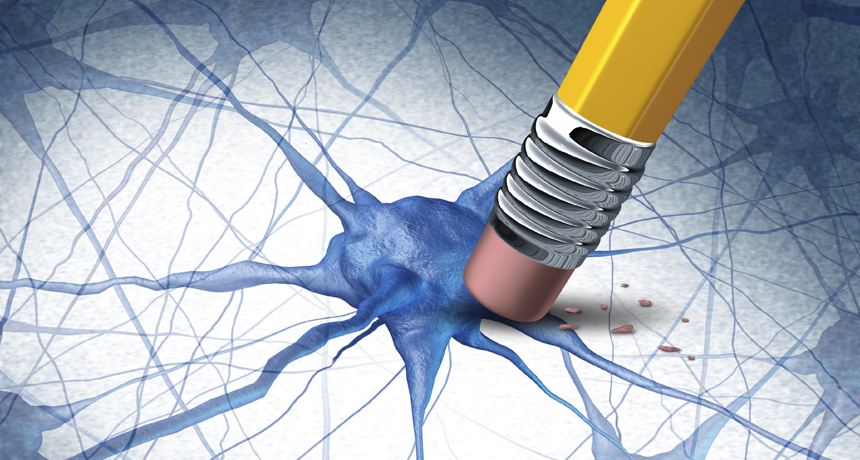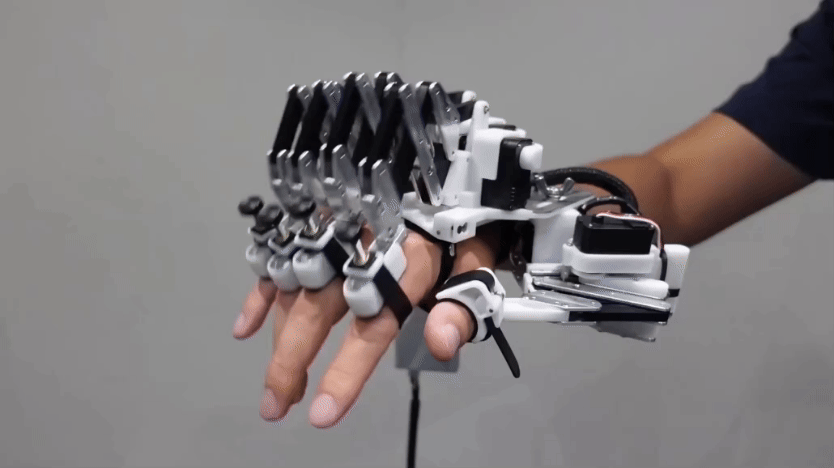Erasing memories
A shock to the brain may help erase a bad memory

A new study suggests that receiving an electrical shock to the brain shortly after recalling a troubling event can help a person forget many of the upsetting details.
wildpixel/iStockphoto
The brain stores memories, both good and bad. But they don’t always stay put. A new study suggests that receiving an electrical shock to the brain shortly after recalling a troubling event can help a person forget many of the upsetting details.
The study is just the latest in a series by research teams to show that memories are plastic. That means they can be changed and sometimes even erased altogether. These findings could one day lead to new treatments for people who suffer from mental diseases like severe anxiety or post-traumatic stress disorder. Such treatments may be able to target severely disturbing memories and help patients forget them.
Forty-two people took part in the new study. All had severe depression. This disease leaves people feeling sad and hopeless, and they often lose interest in activities they once enjoyed. Doctors were already treating these study participants with electroconvulsive therapy, or ECT. It delivers an electrical jolt to the brain.
Scientists knew ECT can muddle a patient’s memory. But the new study shows a way to turn that side effect into a benefit. Doctors found they could target which details were forgotten by timing the treatment to occur shortly after those details had been recalled.
“We are starting to understand the process, to some extent,” Marijn Kroes told Science News. Kroes is a neuroscientist at Radboud University Nijmegen in the Netherlands who worked on the new study. It was published December 30 in Nature Neuroscience. Its findings represent a first step toward helping people, he says. However, he adds: “We are a very long way away from treating patients.”
Each patient taking part in the study listened to two upsetting stories while looking at a series of pictures. In one story, a boy was hit by a car. Later, at the hospital, doctors had to amputate both of his feet. In the second, a woman was attacked in an alley. One week after first hearing both stories, each patient looked at a photo from one of the events. Doctors then asked questions that forced the patients to remember details about that event. Neuroscientists have found evidence that recalling a story in such a way can make memories about it vulnerable to change.
And that’s precisely what the researchers attempted to do. They looked to change that recalled memory with ECT.
Immediately after patients recalled details of one story, the doctors put them to sleep. While they were unconscious, most patients received an ECT shock to the brain. One day later, each patient took a multiple-choice test. They had to remember details about both upsetting stories.
People who did not get ECT remembered details of both stories fairly well. Patients whose brains were zapped as part of the treatment remembered details of only one story well. It was the one they had not been thinking about just before the treatment.
Details of the story the patients had been thinking about before ECT were recalled poorly, the scientists found. In fact, the patients scored no better on remembering these details than if they had simply guessed the answers.
These results suggest that ECT can diminish recall of something a patient had been thinking about just before the treatment. But it also took a day for that fuzziness to sink in, Kroes’ team found.
Daniela Schiller calls the results of the new study “elegant.” She’s a neuroscientist at Mount Sinai School of Medicine in New York who did not work on the new study. Although the new study looks promising, she noted that Kroes’ team has more work to do. For instance, she says, the drug used to make the patients unconscious might have played some role in the memory tampering. That needs to be checked out. She also points out that people may remember details of stories encountered in the lab — like the events associated with the photos — differently than they do events that happen to them in real life.
ECT may never be appropriate for simply erasing a bad memory, Kroes says. But for people already undergoing the treatment for other reasons, ECT may allow them to gain control over crippling memories. For instance, a patient might target bad memories to be wiped out by recalling them just before treatment.
The trick, of course, will be ensuring that the treatment doesn’t affect any good memories. That may require not thinking about them immediately prior to getting the brain treatment.
Power Words
anxiety A nervous disorder causing excessive uneasiness and apprehension. People with anxiety may even develop panic attacks.
depression A mental illness characterized by persistent sadness and apathy. Although these feelings can be triggered by events, such as the death of a loved one or the move to a new city, that isn’t typically considered an “illness” — unless the symptoms are prolonged and harm an individual’s ability to perform normal daily tasks (such as working, sleeping or interacting with others). People suffering from depression often feel they lack energy to get anything done and have difficulty concentrating on things or showing an interest in normal events. Many times, these feelings seem to be triggered by nothing; they can appear out of nowhere.
electroconvulsive therapy, or ECT A treatment of mental illness that uses the application of electric shocks to the brain.
neuroscience Science that deals with the structure or function of the brain and other parts of the nervous system. Researchers in this field are known as neuroscientists.
post-traumatic stress disorder, or PTSD A severe condition that may develop after a person is exposed to a traumatic injury or severe psychological shock. Recalling the event can bring on anxiety and other problems in the victim.







